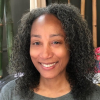Meet Teaching Artist Troy Wilderson

Troy Wilderson is a New Orleans–born writer, senior prose feedback editor for Typehouse Literary Magazine, and a manuscript reader for a local independent publisher. She teaches the art of short story writing online. Her short fiction has appeared in Roanoke Review, the Tishman Review, Crack the Spine Anthology XVII, the Louisville Review, Notre Dame Review, and F(r)iction, among others, and is forthcoming in Still: The Journal and Cobalt. Her teaching approach is hands-on, and she strives for inclusivity. She holds an MFA in creative writing from Spalding University and is a 2019 McKnight Foundation Writing Fellow.
To see Troy's current classes, visit her author bio page.
***
When did you start teaching? What path—career or otherwise—brought you here?
A few years of providing feedback on submissions as a senior prose editor at a literary magazine proved to be the greatest influence on my finding the road to the teaching path. Reading short fiction and nonfiction pieces at varying levels of dexterity has taught me how to be a critical reader—as well as how to be prescriptive when necessary. To that end, I started teaching creative writing over a year ago, and I found that I really enjoyed building a rapport with other writers and sharing my thoughts on the written word.
Additionally, I was a self-taught writer up until I went to grad school. I'd been writing for decades, largely in a vacuum. I wrote for myself and didn't share my work with anyone (much less submit it anywhere). So, I have a lot of empathy for those who are just starting out with their writing. Anyone who is making a career change or writing more ardently and purposefully will find a new comrade in me. I was fortunate to have worked in advertising for many years where I had the opportunity to do a good deal of copywriting. I started out as an art director. But, in design school, my art direction teacher pulled me aside and asked me if I wasn't sure that I didn't want to be a writer instead. So, my love for writing has deep roots.
I'm also a copy editor and Chicago Manual of Style geek who just enjoys working with authors to polish their manuscripts. And I enjoy a wide range of genres. I love short fiction the most, but I'm also a fan of everything from experimental novels to noir mysteries to classic memoirs.
How would you describe your teaching style?
Nurturing. I'm a very encouraging teacher, and I am always able to articulate the strengths of an author's work first before I delve into the areas that need attention.
When it comes to imagining and creating classes, where do your ideas come from? What in particular inspires you?
I'm inspired by aspects of the craft that I can't get enough of. My ideas often come from my own writing sessions when I'm working on a particular aspect of the piece, such as the first (or last) line of a short story. I'm really into character names, so much so that I did a lecture on the subject in graduate school. Any subject that I've really dug my heels into research-wise is inspiration for a class. More than anything, I enjoy looking at topics that will not only interest students but will bolster their work and push it to a new level.
What's the ideal environment for your classroom? What atmosphere are you hoping to establish?
The ideal environment for my classroom is one that fosters conversation about the craft or writing. Even during the "lecture" portions of my classes, I hope some discourse on the subject being taught will occur. I strive for an open and inclusive atmosphere where students find that they have a safe space to talk about writing and their own work. I strive for my classroom to be one where we celebrate writing—published authors, each other's, and our own.
Regardless of what your class is specifically focusing on, what's the main goal you have for your students?
My main goal for students in my class would be for them to have strengthened their writing with what I've taught them. It could be as simple as helping them come up with stronger character names to creating more compelling narrative arcs. If they improve their art, I'm pleased.
What are goals you have for yourself? These could be teaching goals, writing goals, career goals, community goals, etc.
My greatest goal is to write, write, and write some more. My greatest fear is that I'll run out of ideas, so I am constantly looking for fodder for the next story, the next poem, the next novel. My next highest goal is to see students of mine achieve success (in whatever form "success" takes for them).
What have been some of your own favorite educational experiences?
I enjoyed workshop in graduate school the most because it called for me to be a critical reader—from the big picture down to the sentence level—and also be able to articulate aspects of the craft in a way that helped fellow authors improve their writing.
To you personally, what is the most important part of the literary arts?
The ability to inhabit worlds drastically different from my own experiences is the most important part of the literary arts, in my mind.
Is there anything else you'd like to share?
As a child, I read the dictionary for fun.
